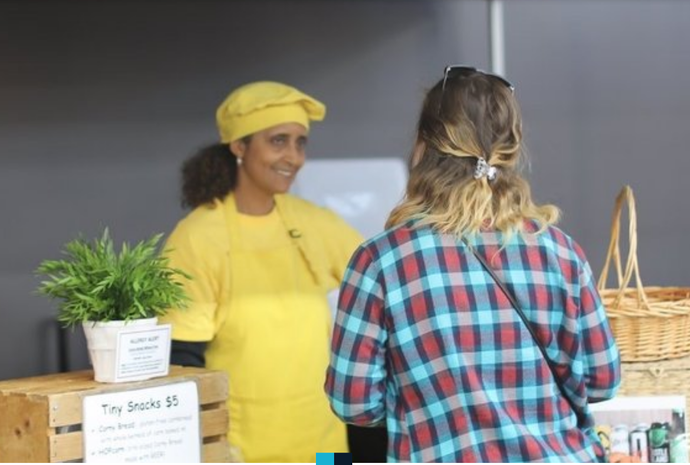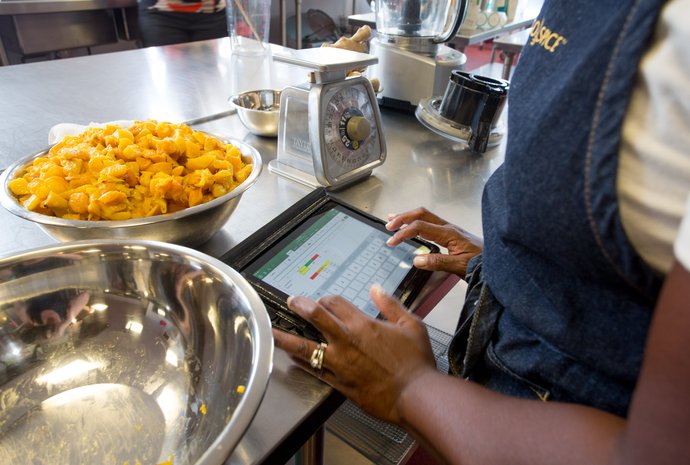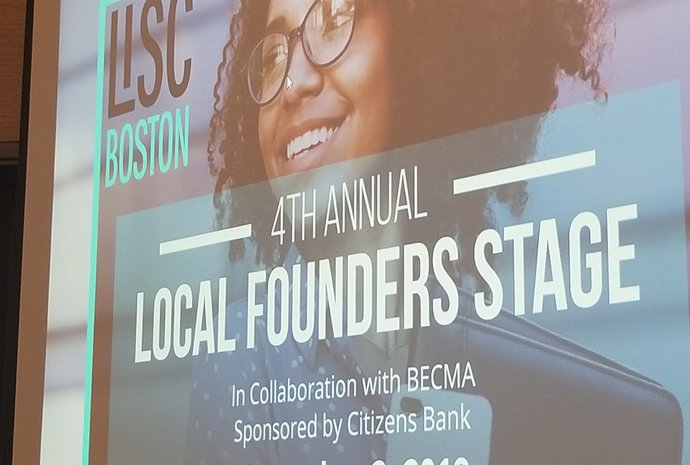Small Grants, Big Impact
Faced with the pandemic's catastrophic economic impact, small businesses across the Commonwealth struggled to gain access to the capital they needed to stay afloat. This was especially true for minority and woman-owned small businesses who already faced limited access to capital and related supports. With generous seed funding from Citizens Bank, LISC Boston launched the Small Business Recovery Grant Program for Massachusetts to provide immediate relief to these and other underserved businesses as part of the LISC Rapid Relief and Recovery Fund for Massachusetts. Over 75 small businesses across the state received flexible grants of up to $10,000 to cover everything from rent and employee pay to purchases needed to shift operations and adjust products to meet their clients' needs safely. Four of their stories are featured below.
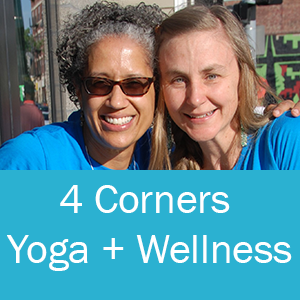 | 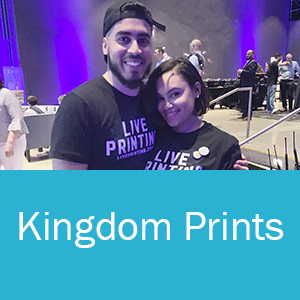 | 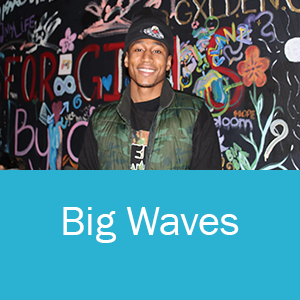 | 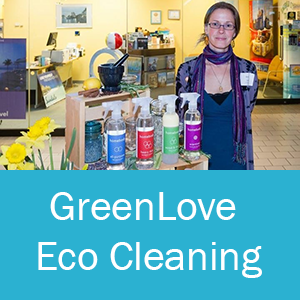 |

4 Corners Yoga + Wellness
Dorchester, MA
Christine Rose and Karuna O’Donnell shared a vision of developing a community of well-being and providing resources that support health for all people. With this dream in mind, they co-founded 4 Corners Yoga + Wellness in Dorchester. For the past three years, they have worked together to create a beautiful and welcoming space for members of the community to unpack the heaviness of the day’s challenges.
“Our [goal] is very much about gathering people together to inspire and uplift,” says O’Donnell. Pursuing that goal has become a challenge with the studio closed since late March due to the pandemic. O’Donnell and Rose initially found it tough to fully nurture the physical, social and emotional well-being of their clients while social distancing. 4 Corners Yoga + Wellness prides itself on meeting customers where they are in their journey of transformation and centeredness. They typically offer accessible services to ensure every “body” is comfortable and feels welcome in the space. They feel it is critical for customers to be able to get what they need from their service. The pandemic made this nearly impossible as they had to close and lay off their full staff of 15 employees.
The two owners have remained optimistic. “People in overwhelming life situations learn and heal beyond [their] present circumstances,” says Karuna – and the coronavirus pandemic is certainly putting that idea to the test. She believes “wellness resources cultivate resilience in people of all ages” and that the space 4 Corners Yoga + Wellness provides for connections, health, and resources they provide are especially needed now.
With the mandatory stay-at-home order, the wellness duo was unable to offer many of their services. Forty percent (40%) of their subscribers cancelled their memberships. Those subscriptions were a hefty piece of the lifeline for a center offering life-affirming practices such as yoga, meditation, energy healing and massage services. The disruption of services and resources is not a good prescription for healing in times of heightened stress and uncertainty – for Rose, O’Donnell, or their clients.
Since March, Rose and O'Donnell have transitioned to doing business virtually in ways that avoid the personal touch and kinds of connections they envisioned relying upon when they opened their studio. They have applied for every resource available to them including federal and local loans and grant programs — whatever can carry them through. They found help through LISC’s Small Business Recovery Grant Program for Massachusetts. The grant will help 4 Corners Yoga + Wellness reactivate both staff and clients. The healing pair is eager to get bodies back in motion, energy refocused, and minds centered – especially their own.

Big Waves
Cambridge, MA
From dreams of being a professional basketball player to now being a successful small business owner, 25-year-old Tevin Charles is a social-media-and-music influencer, owner of a t-shirt company and more through his brand Big Waves. A Cambridge native and aspiring videographer and editor, Charles aka Yungsurfgod, is often described as being used to overcoming obstacles and turning nothing into something. “Everyone in my family has some form of small business. That’s what [we] do,” he says, referring to his Jamaican roots, lessons learned from his family, and his entrepreneurialism. Inspired by his older brother who owns Urban Fresh, an online clothing brand, Charles started his own business. In all of his ventures, he's focused on positively impacting the lives of youth in need inspiration and the development of their own creative skills. Through music and marketing, he uses his company brand Big Waves to encourage young people saying, “Surf your own waves. Don’t follow. Be a leader in your own creative space.”
Before the pandemic, Charles also served as a youth worker in a Cambridge community center where he provided support to youth from Cambridge and greater Boston. Tevin helped guide and encourage young people by facilitating workshops such as the ‘Boys to Men’ series which highlights the importance of healthy living through eating well and exercise, explores how young people see themselves as part of their community, and effective ways of using their voice. He is passing along knowledge and skills he gained as a member of The Loop Lab, a Cambridge-based nonprofit social enterprise which empowers people of color cultivating skills in media arts and digital storytelling while also developing life-navigation skills for job placement and careers in media arts. Tevin aspires to lead a younger generation of creatives to push the boundaries of their innate creativity to engineer growth in whatever artistic trade they find their passion – helping them find and surf their own waves.
Yungsurfgod says he uses Big Waves as a platform to “to bring out the best in inner city youth. I guide them to stay focused on something productive and off the streets, like someone did for me.” He firmly believes this is to be his main focus in life, explaining, “[This business] is my life’s calling. It’s what I’ve been put on this earth to do.”
Under normal circumstances, Big Waves employs two staff people who work to elevate the brand and support young people. Due to COVID, both staff members have resorted to temporary work to make ends meet for their families. One is currently pursuing freelance photography and the other is now a Starbucks employee. Silence fills the Cambridge community center since the Commonwealth’s mandatory shut down – there are no discussions, teaching series, collaborations, or sounds of music flowing from the activity rooms. Tevin’s contract ceased so that outlet for bringing young people together around positive messages of hope and empowerment has also ceased, for now. Like so many others, the pandemic crippled his livelihood. When COVID-19 hit, Yungsurfgod was preparing for his next music and message launch, but the pandemic interrupted shipments and The Loop Lab is on pause. “I can’t move on anything,” he says. He sought help everywhere he could since his family is operating off of one income—that of his mother who recently retired from a job in the mental health field. Tevin began searching online for opportunities to manage through the crisis. When he reached out for unemployment, he was told he didn’t qualify. He couldn’t seem to get funding from anywhere. “It was hard,” he says. “I was in a dark head space. I was trying to stay positive.”
He applied for a grant from LISC’s Small Business Recovery Fund for Massachusetts through LISC Boston to help mitigate the impact of the pandemic on his business and family. Describing how he felt when he learned he was awarded a grant through the program he says, “I had been turned down so much during this time, that I almost thought, ‘This isn’t real.’ ” When he realized the award was legitimate, he said the feeling was like eating his favorite pink starburst – he exploded on the inside. He now says, “I’m gonna make it.” He plans to use the grant to help his employees and to pivot his business strategy to be able to continue empowering young people to stay focused and productive during challenging times like this. “This is my passion and my purpose. I’m reaching people, touching people, and it’s a very humbling feeling."
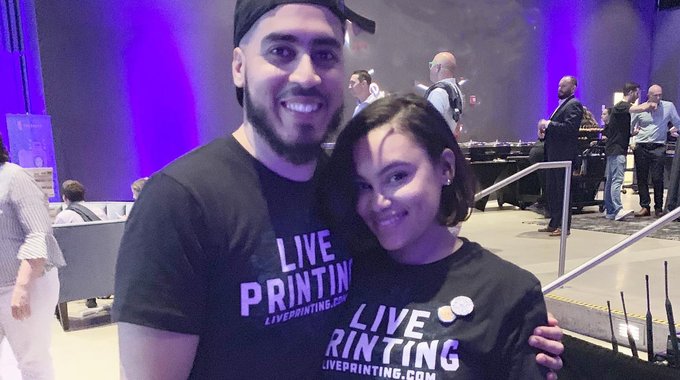
Kingdom Prints Co.
Lawrence, MA
Weylin Vidal launched Kingdom Prints Co. just over five years ago in Lawrence. The design and screen-printing company produces logos and customized t-shirts for their clients’ events, charitable causes, and community gatherings.
Prior to the pandemic, business was booming with orders steadily coming in. Kingdom Prints, which consists of Weylin, his wife, and a part-time employee, also had live t-shirt-printing events scheduled for months out. With the spread of COVID-19 and the closure of all non-essential businesses, Weylin had to close the shop. The shutdown has significantly impacted the company’s bottom line given his clients are not hosting in-person events or ordering t-shirts during the pandemic.
Even so, Weylin has kept his spirits up, which he attributes to his strong faith in God and his positive outlook on the future despite the current circumstances. He talks with his team daily about how they plan to reopen safely and how they can help customers and community members with the products they need beyond t-shirts in this new environment.
Kingdom Prints received a grant from the LISC Small Business Recovery Grant Program for Massachusetts to pay staff, cover rent, conduct marketing, and pivot to printing products beyond t-shirts. “When I read the message announcing the grant, I couldn’t believe it,” Vidal says. “This will help so much—even with just covering overhead while we figure out how to reopen. So many others told us, ‘Funds have run out,’ or ‘You don’t qualify.’ It’s been so frustrating, so we are really grateful for this.”
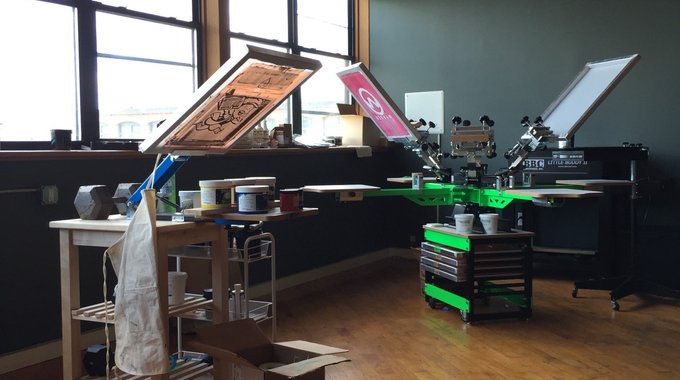
Five years ago, having an eye for design, a passion for doing more than he was doing driving for Uber, and a need to support a growing family, Weylin started taking a graphic design course online. Around the same time, he agreed to make a logo for t-shirts for his church’s retreat as a fun outlet. The shirts were a hit. Members of the congregation were so impressed they spread the word. Soon, others in the Lawrence community asked him to make logos for them. As the number of orders grew, Weylin began to see small batch t-shirt printing as a viable, creative business. He quickly signed up for more design classes as well as screen-printing courses in New York for in-person trainings on how to use t-shirt printing machines. He eventually saved enough money to purchase his first machine about four years ago. Business has been booming ever since – that is, until COVID-19 hit.
He is well known in the community and often offers free batches of uniquely branded t-shirts to people and organizations in need – some in response to requests they make to him and to others, simply as a gift. When told a popular local youth baseball team was in desperate need of uniforms, he designed a jersey for them and was excited to be part of the Lawrence community cheering the team on as they made it to the championship. Last October, Kingdom Prints had the honor of being selected to work with Red Sox player Brock Holt and his wife on their #BrockingOutCancer marketing campaign to fund childhood cancer research.
Inspired by his parents who worked hard at multiple jobs as immigrants from the Dominican Republic, Weylin built Kingdom Prints Co. to sustain his family – his wife and two small children – and to pass the business on to his kids. He has also aimed to be a source of inspiration to young people seeking creative, non-traditional careers. About the projects Kingdom Prints Co. works on with clients and practicing his faith, Vidal says, “We simply want to be a bridge between the impossible and the possible.”

GreenLove Eco Cleaning
Northampton, MA
As a newly single mother of a young daughter and son, Amy Lovell one day helped a friend whose cleaning company had more clients than her staff could handle. The friend handed one of her clients over to Amy who needed the income. Lovell, who suffers from chemical sensitivities and lives an eco-friendly lifestyle, used home-grown ingredients to craft homemade cleaning products to clean her own home in order to keep herself and her children safe from toxic chemicals. “I have always been a do-it-yourselfer,” Amy says to describe how as an herbalist and homesteader, she grows herbs and essential plants like lavender on her small farm and raises goats and chickens. When Amy cleaned her client’s house, she brought along her homemade cleaning solutions. This made her the talk of the town with her client’s friends and colleagues. Over time, Amy’s clientele grew and so did the demand for her eco-friendly cleaning products. Her business was expanding until COVID hit.
Lovell founded GreenLove Eco Cleaning to bring eco-friendly methods of cleaning to the mainstream; to model the value of proactive self-sufficiency, responsibility and eco-stewardship to her children; and to provide opportunities for other single moms to do the same. GreenLove Eco Cleaning has succeeded in protecting the health and improving the quality of life of its employees and clients alike through its intentional use of eco-friendly products and its company values. GreenLove Eco Cleaning uses vinegar and water-based products infused with herbal extracts and oils. The company culture puts workers first by offering living wages and flexible scheduling, allowing employees to prioritize themselves and their families. “We are able to cover each other if one of our children get sick,” says Lovell. “We are all stronger together,” she says. Lovell, taking the workers-first values even further, plans to convert GreenLove Eco Cleaning into a worker-owned cooperative later this year to further her mission of advancing self-sufficiency.
About establishing the company, Lovell says, “This was an opportunity to strengthen and empower women to achieve financial independence…so we can better provide the safety and security our children need now and for a better future. I was inspired by the commonalities of the socio-economic challenges we all face as parents striving to provide a decent, stable life for our children in such uncertain times.”
Lovell’s business and her dream were suddenly in jeopardy when Massachusetts’ shelter-in-place order went into effect in March. “All my revenue ceased,” she says. Three weeks after closing her doors, Lovell ran out of money to pay her 20 employees. Although she is no longer raising her family on her own as a single mother, Amy wanted to figure out how to make ends meet not just for herself and her five children but her staff, too. She applied for everything from the Economic Injury Disaster Loan and Advance Program and the Paycheck Protection Program (PPP) to LISC’s Small Business Recovery Grant Program for Massachusetts.
In May, GreenLove Eco Cleaning was awarded a grant from LISC Boston’s program. The funds are giving Lovell the opportunity to help her employees and save her business. She can now catch up on hefty workers' compensation and insurance premiums and manage overhead expenses. Knowing there are organizations and large corporations that believe in the value of small businesses like hers gives Amy confidence in her continued effort toward cooperative ownership for GreenLove.
“We are proud to be an empowering safe haven for women working in the cleaning industry as we bring greener, cleaner alternatives to the service field that benefit our workers and clients alike.”
These incredible entrepreneurs and their busineses are just a few of the over 75 businesses awarded grants through the program. Thank you to Citizens Bank for seeding this grant program and for your continued commitment to helping small businesses in Massachusetts.

Read the press release about LISC Boston's statewide relief fund for small businesses in Massachusetts.

Learn more about the LISC Rapid Relief and Resiliency Fund for Massachusetts initiatives, including resources for small businesses and communities.
